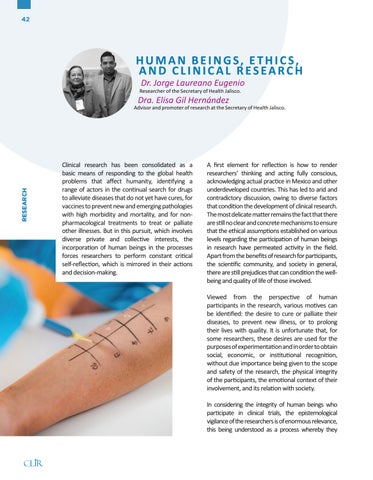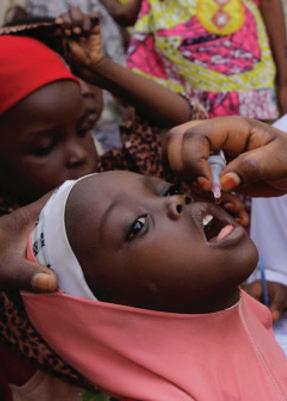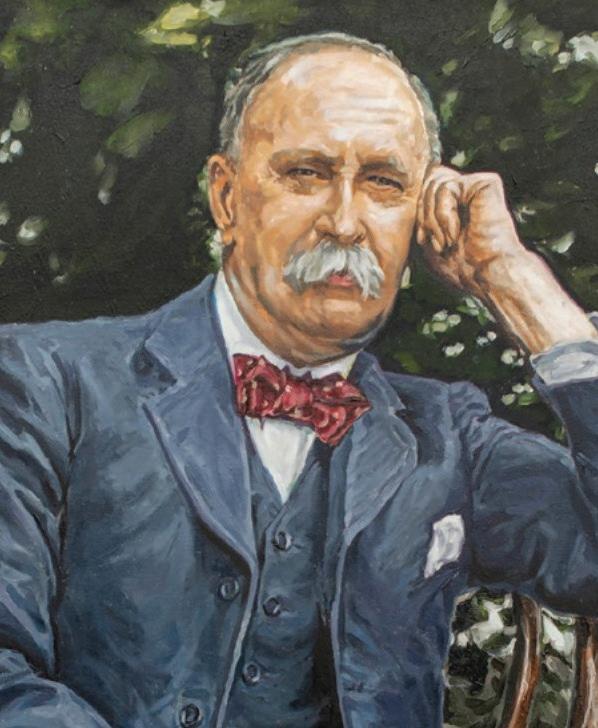42
HUMAN BEINGS, ETHICS, AND CLINICAL RESEARCH Dr. Jorge Laureano Eugenio
Researcher of the Secretary of Health Jalisco.
Dra. Elisa Gil HernĂĄndez
RESEARCH
Advisor and promoter of research at the Secretary of Health Jalisco.
Clinical research has been consolidated as a basic means of responding to the global health problems that affect humanity, identifying a range of actors in the continual search for drugs to alleviate diseases that do not yet have cures, for vaccines to prevent new and emerging pathologies with high morbidity and mortality, and for nonpharmacological treatments to treat or palliate other illnesses. But in this pursuit, which involves diverse private and collective interests, the incorporation of human beings in the processes forces researchers to perform constant critical self-reflection, which is mirrored in their actions and decision-making.
A first element for reflection is how to render researchers’ thinking and acting fully conscious, acknowledging actual practice in Mexico and other underdeveloped countries. This has led to arid and contradictory discussion, owing to diverse factors that condition the development of clinical research. The most delicate matter remains the fact that there are still no clear and concrete mechanisms to ensure that the ethical assumptions established on various levels regarding the participation of human beings in research have permeated activity in the field. Apart from the benefits of research for participants, the scientific community, and society in general, there are still prejudices that can condition the wellbeing and quality of life of those involved. Viewed from the perspective of human participants in the research, various motives can be identified: the desire to cure or palliate their diseases, to prevent new illness, or to prolong their lives with quality. It is unfortunate that, for some researchers, these desires are used for the purposes of experimentation and in order to obtain social, economic, or institutional recognition, without due importance being given to the scope and safety of the research, the physical integrity of the participants, the emotional context of their involvement, and its relation with society. In considering the integrity of human beings who participate in clinical trials, the epistemological vigilance of the researchers is of enormous relevance, this being understood as a process whereby they























